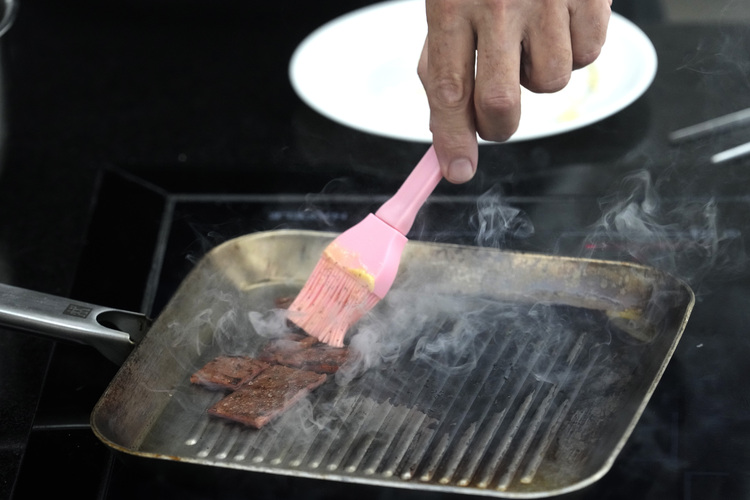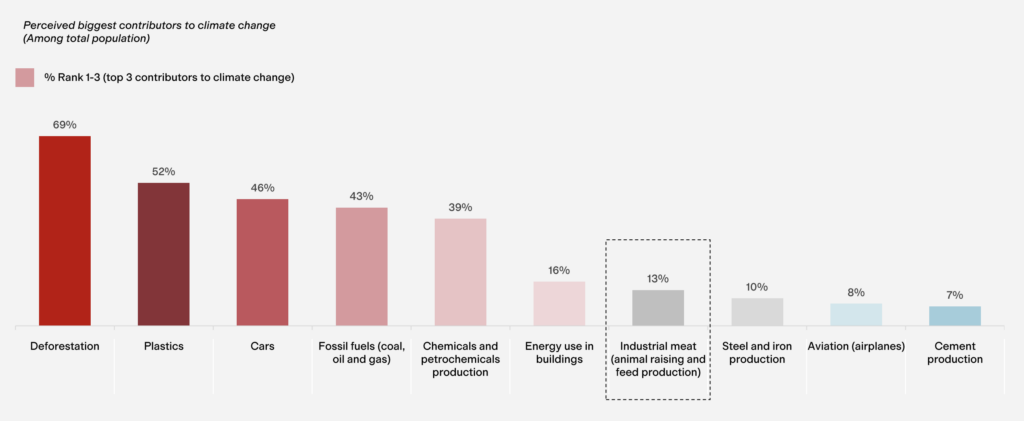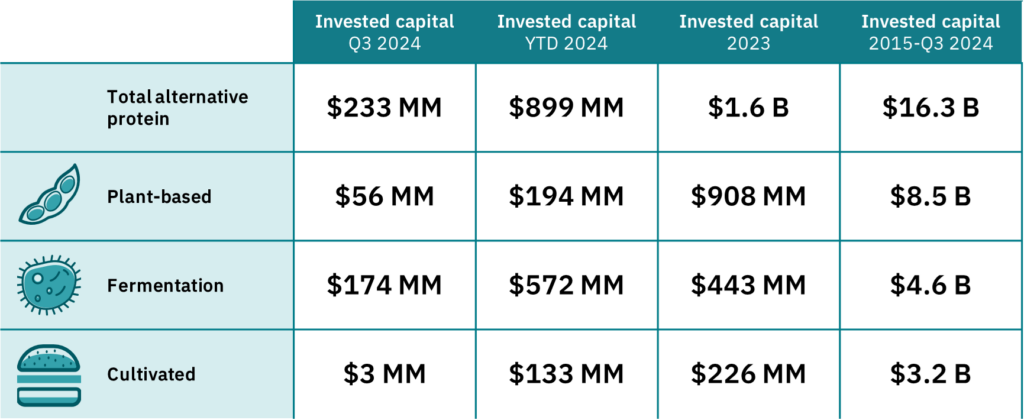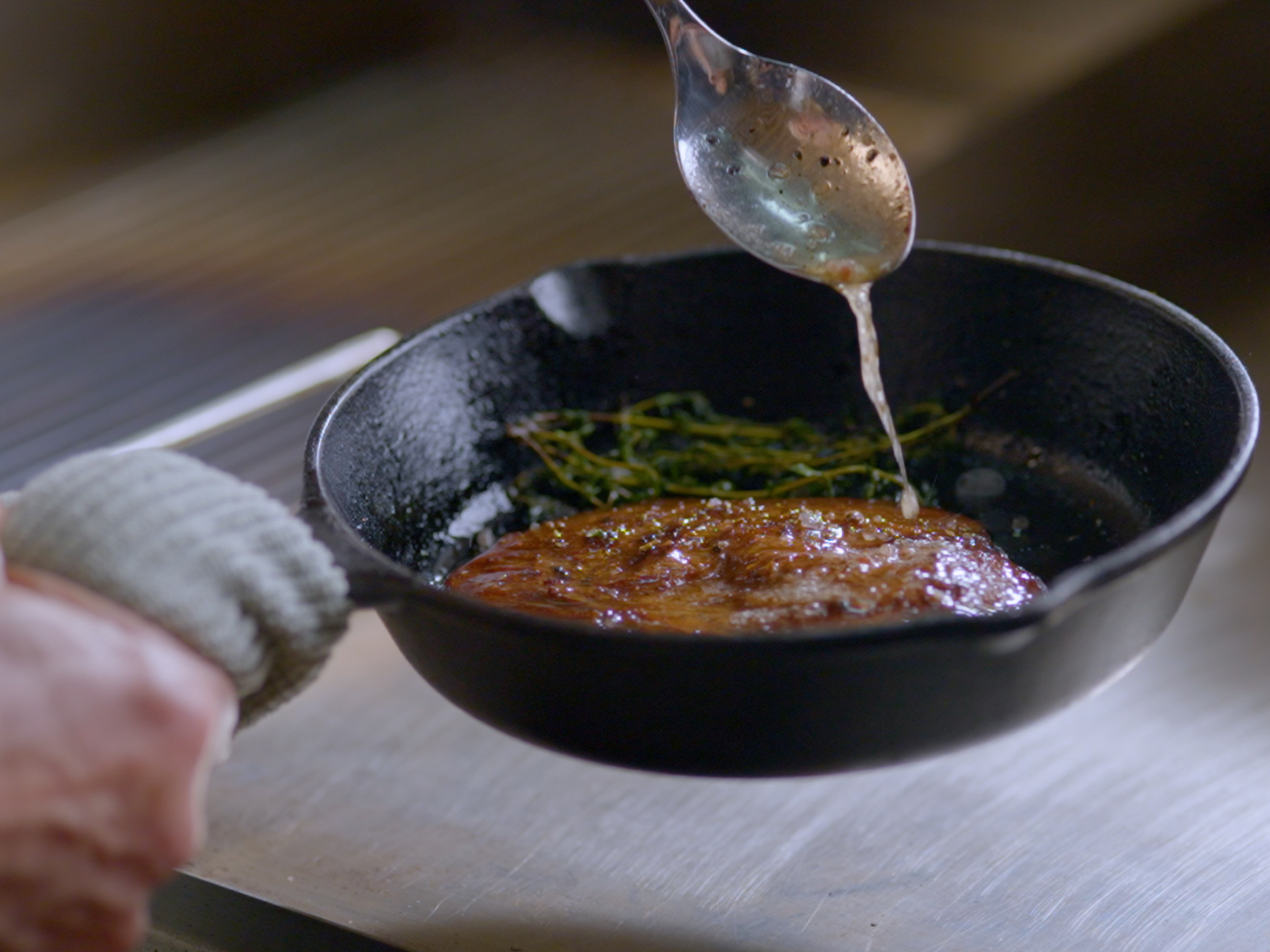Aleph Farms Files for Regulatory Approval in Thailand, Eyes 2026 Launch of Cultivated Beef
7 Mins Read
Israeli startup Aleph Farms has submitted the first application for cultivated meat in Thailand, and expects regulatory clearance by mid-2026.
As far as regulatory progress for alternative protein goes, 2024 has been bookended by Israel’s Aleph Farms. The cultivated meat pioneer began the year with the greenlight to sell its beef in its home country, and is ending it in pursuit of yet another approval.
The Rehovot-based startup has filed a dossier for its cultivated beef steak in Thailand, marking the first such application in the country. It was submitted to the National Center for Genetic Engineering and Biotechnology (BIOTEC), the agency overseeing safety assessments for novel foods, as designated by the Thai Food and Drug Administration (FDA).
“We chose Thailand because of its reputation as the ‘Kitchen of the World’, renowned for its rich culinary heritage, advanced food production capabilities, and strategic position as a gateway to key Asian markets,” Aleph Farms co-founder and CEO Didier Toubia tells Green Queen.
“Thailand is also transitioning into a powerhouse for novel foods. Aleph Cuts align perfectly with Thai cuisine, and the country’s strong commitment to sustainability, combined with our trusted local partnerships, creates an ideal environment to drive meaningful innovation and growth in the region,” he adds.
Upon approval, the company’s Blank Angus Petit Steak will be sold under the Aleph Cuts brand. Doubia indicates that a timeline is difficult to predict, but “in principle, we estimate the process will take around 18 months”.
Aleph Farms working closely with Thai Union

Aleph Farms received “instrumental” guidance to navigate Thailand’s regulatory framework from local seafood giant Thai Union, which is an investor in the alternative protein firm. The two entities spent nearly a year conducting extensive preparatory work and collaborating with the country’s regulatory agencies.
“This partnership was crucial in establishing the foundational regulatory framework needed to support this groundbreaking first submission for cultivated meat in Thailand,” says Yifat Gavriel, chief of regulatory affairs and product safety at Aleph Farms
“This proactive engagement not only laid the essential groundwork but also paved the way for an innovative regulatory path forward,” he says.
Doubia calls Thai Union a “key partner” for Aleph Farms. “We believe cultivated meat should be localised to fit into local markets and preferences, which we can achieve only through partnerships,” he says. “We also expect their expertise and infrastructure to accelerate the scale-up, market entry, and commercialisation of Aleph Cuts.”
The development comes just over a month after Aleph Farms conducted a tasting for food industry professionals in Bangkok, consulting with several local chefs who were left impressed by the Blank Angus Petit Steak, which will be sold under the Aleph Cuts brand.
In February, the startup partnered with biomanufacturer BBGI and synbio firm Fermbox Bio to initiate Thailand’s first factory for cultivated meat production. “We are currently finalizing plans for our facility in Thailand in partnership with BBGI and Fermbox Bio,” says Toubia. “As the project advances, we look forward to sharing more updates in the months ahead.”
Thailand’s appetite for (cultivated) meat

Over the last three decades, meat consumption in Thailand has skyrocketed by 180%, doubling the amount of land used for livestock farming. As things stand, the country would require 42% more land to meet the animal protein demand by 2050, which would also produce 15% more emissions.
While pork and poultry appear most often on local plates, beef consumption is up by 11% from pre-pandemic levels, as dining out and tourism expand the food options on offer, and beef-heavy cuisines like Korean become more popular.
More beef means more land, more water, more emissions, and more problems for the climate. And the problem is compounded by the fact that four in 10 Thai people don’t know a lot about the impact of animal agriculture, with only 13% believing industrial meat production is a major driver of climate change, according to a December 2023 survey.
That poll also suggested that just a quarter of Thailand’s population is aware of cultivated meat, posing significant consumer education challenges for companies such as Aleph Farms. Toubia looks at it positively, though: “This gap is an opportunity to shape the perception of cultivated meat with real and transparent information about what cultivated meat is and is not.”
In any case, two-thirds of locals are looking to put less meat on their plates, primarily for health reasons. A 2021 survey conducted by Aleph Farms and Thai Union offered more promising results for cultivated meat too, suggesting that nearly all (97%) of Thai consumers want to try these proteins.
Leveraging international cooperation for regulatory wins

Toubia suggests that the Thai application is “a significant milestone” in the firm’s operational roadmap for Southeast Asia and the broader Asia-Pacific region.
The startup has already submitted an application in Singapore, where two companies are already selling cultivated meat, as well as Switzerland in the UK. It is additionally in “advanced pre-submission consultations” in several countries, including the US.
In September, Aleph Farms revealed to Green Queen that it planned to eventually expand into Japan, South Korea, Australia, China, and Hong Kong. The latter became just the fifth region to clear cultivated meat for sale last month, using Singapore’s approval of Aussie startup Vow as a benchmark.
This model of international cooperation is set to become increasingly popular among regulators and cultivated meat startups alike, both of which are hoping to speed up the approval process across geographies. The UK has been working on a collaborative approach like this too, and both Dutch cultivated pork maker plans to leverage it to get the nod in several Asian countries next year.
Aleph Farms is hoping to do the same, says Doubia. “And we are adopting a similar approach in the EMEA region, where we have already secured approval from Israel’s Ministry of Health,” he adds.
The Israel approval came about in December 2023, but Aleph Farms still needs to clear a Good Manufacturing Practices inspection for its production facility before it can sell its cultivated beef steak.
“Our focus is on building the necessary production capabilities to ensure a reliable supply and sustainable revenue growth before launch,” says Toubia. “In the meantime, we are refining our product-market fit and continuing our cost reduction program.”
The Petit Steak – a hybrid meat product comprising non-modified, non-immortalised cells of a premium Black Angus cow, combined with a plant protein matrix made of soy and wheat – will be priced similarly to premium beef, the company has previously confirmed.
“By incorporating valuable market insights from our recent chef workshops, we aim to create a differentiated category in the animal protein space, ensuring Aleph Cuts are positioned for long-term success and acceptance,” says Toubia.
Cultivated meat critical for ‘natural security issues’

Aleph Farms has raised $118M from investors since it was founded in 2017, but it hasn’t been immune to the challenges faced by the cultivated meat category, which saw funding dip by 75% in 2023 (with a further decline looking likely this year).
The sector-wide investment decline, combined with the geopolitical tension with the Israel-Hamas war, has reportedly impeded Aleph Farms’ efforts to secure more money, playing a part in its decision to lay off 30% of its local employees earlier this year, which the company described as part of its “asset-light” strategy.
While 2024 has been a seminal year for cultivated meat regulation, and next year is set to witness more companies breaking through to market, daunting obstacles remain – not least politically. Italy has already banned cultivated meat, while France, Romania and Hungary have tried to.
In the US, Florida and Alabama have outlawed these foods, while lawmakers in at least 12 other states have proposed similar measures. And things will only become more complicated when Donald Trump returns to the White House in January.
Toubia, for his part, outlines the importance of alternative proteins to several critical national security issues, including food security and food sovereignty.
“Amid growing consumer demand, we face a declining livestock population, rising feed costs, an ageing demographic of ranchers, labour shortages, market volatility, supply chain shocks, and significant environmental pressures,” he says. “Diversifying animal protein and fat production has never been more crucial for ensuring national security.”



